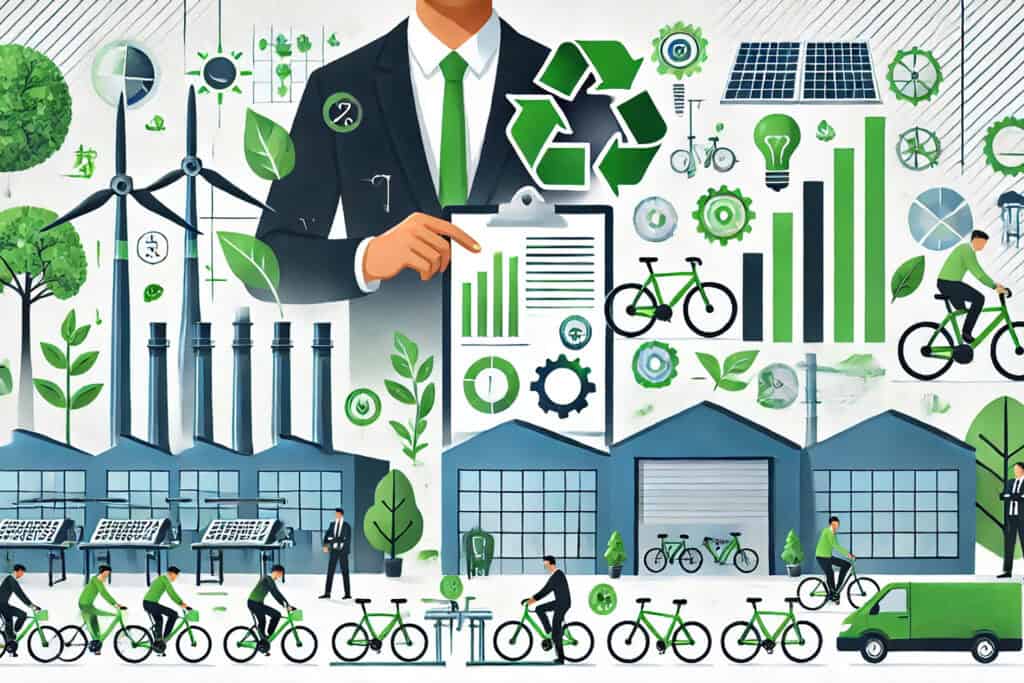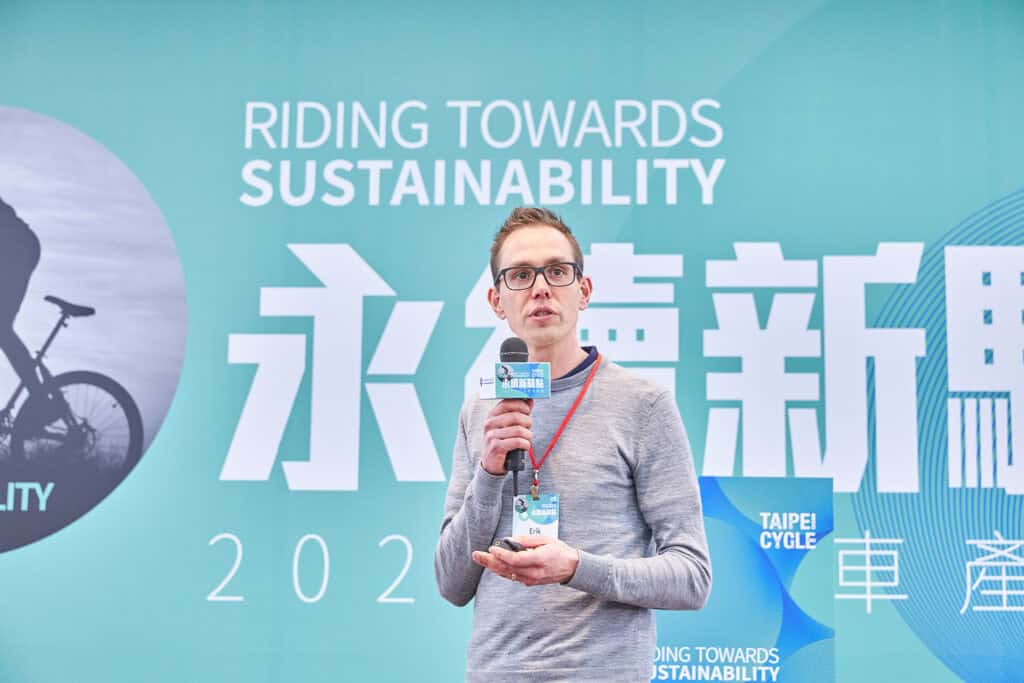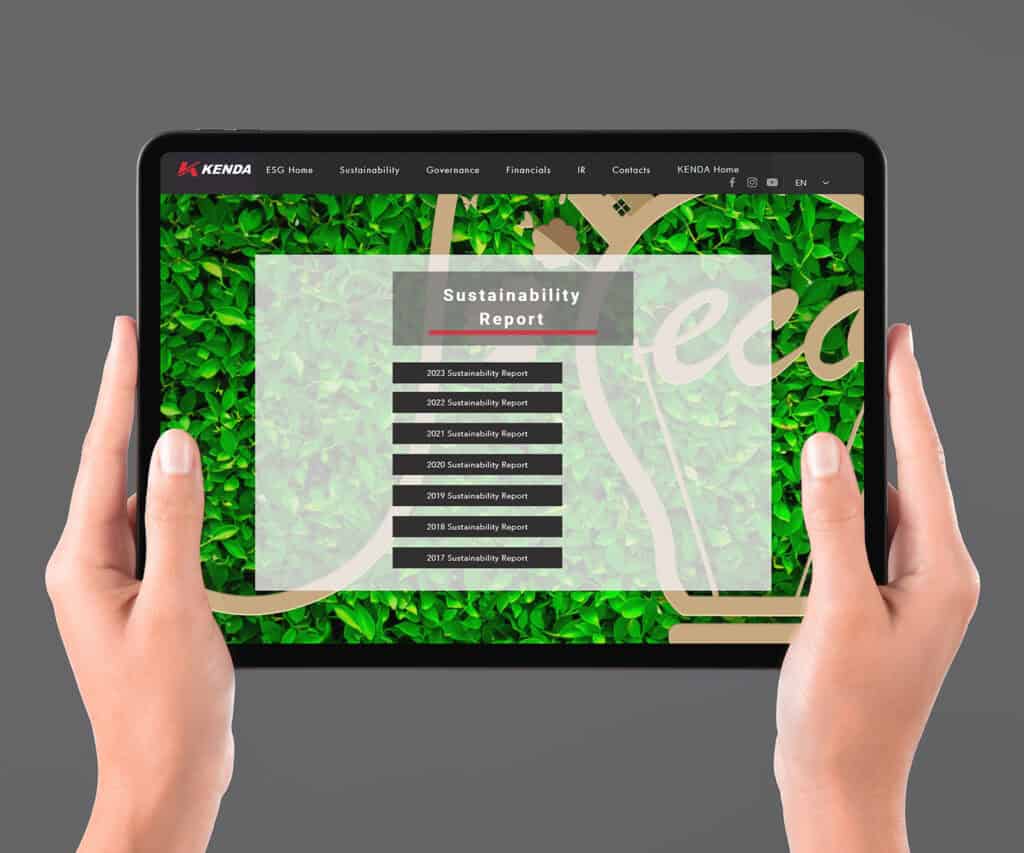As regulations tighten and customer demands grow, more and more bicycle companies are publishing sustainability reports. But what makes an effective sustainability report? The Show Daily reached out to industry experts to find out.

Never before have the warnings from the Intergovernmental Panel on Climate Change been as clear as in last year’s synthesis report on global climate change. The message: if CO2 emissions continue to rise, the target of limiting global warming to a maximum of 1.5 degrees Celsius above pre-industrial levels will be unreachable. Scientists also noted that today’s atmospheric CO2 concentration is the highest it has been in at least two million years, and that the rise is unmistakably human-induced. Around 40 percent of total CO2 emissions from 1850 to 2019 occurred in the past 30 years. If this trend continues, the 1.5-degree threshold will be exceeded within the next 15 years.
Due to urgent warnings like this, it’s no surprise that sustainability is gaining increasing attention in both the political and the business world. The bicycle industry, too, is seeing more companies working on making their business practices more sustainable and reducing their carbon emissions. The fact that these initiatives are far from mere greenwashing is evident in the growing number of sustainability reports published in the two-wheeler sector. “That’s true. In the last two or three years, we’ve seen numerous new sustainability reports in the cycling industry,” says Erik Bronsvoort, co-founder of the organizations Circular Cycling and Shift Cycling Culture, which have been observing sustainability ambitions in the cycling sector for many years. “One reason is certainly the increasing political pressure. Regulations like the European Union’s Corporate Sustainability Reporting Directive force larger companies to engage more deeply with sustainability reporting and their supply chains. Another reason is that it’s been realized that sustainable practices don’t necessarily have to cost more but can actually save money, through energy savings, for example. However, the most important reason is that companies have recognized that reporting gives them a better understanding of the business and where they can have the greatest impact, also in terms of innovation,” he summarizes.

Different motivations and challenges
A look at the reporting initiatives of various bicycle-related companies confirms Bronsvoort’s observations. One firm that has been active in sustainability reporting for some time is Kenda. Since 2017, the Taiwanese tire manufacturer has published an ESG report every year. “The trend toward mandatory sustainability reporting is gaining momentum globally across various industries, including the bicycle industry,” says Eric Yang, Kenda’s Vice President of Development. “For bicycle companies, including those in Taiwan, sustainability reporting is increasingly seen not only as a voluntary practice but as an eventual requirement due to regulatory, market, and stakeholder pressure. As a leading tire manufacturer in Taiwan, we wanted to ensure we were staying compliant.”

Another example from Taiwan’s bicycle industry is KMC. “Since KMC began publishing sustainability reports in 2018, we’ve noticed that providing our report to clients before discussing our sustainability development plans has had a major impact on our talks. Clients can see that KMC’s commitment to sustainability is ongoing. This approach helps us quickly reach a consensus when aligning on sustainability actions, streamlining the process for both sides,” says Abby Chen from the KMC marketing department. However, she also mentions the challenges of ESG reporting: “In 2018, with no peer reference materials in the bicycle industry, we could only rely on international standards and reports from other leading Taiwanese companies. However, in the past two years, we’ve seen the rapid rise of international standards and sustainability regulations. This pushed us to revise our reporting framework and strengthen the credibility of our content. We realized that having just one department handle sustainability reports was no longer viable; instead, cross-departmental participation was crucial.”
One example from the European industry is Herrmans. Since 2020, they have regularly published sustainability reports, and the fourth edition was released at this year’s Eurobike. Sari Noromies, responsible for the sustainability development at the Finnish component specialist, shares her experiences: “Our report is a way of communicating our commitment, not only to customers but also to other stakeholders like suppliers, business partners, the community, employees and competitors,” she explains. She also mentions several challenges that come with reporting. “Calculating our carbon footprint is currently a very manual task, and gathering the necessary data takes time. Of course, we want the data to be as accurate as possible, and we’d rather dig deep than rely on rough estimates,” she says, adding that the delay between action and outcome can be a difficulty. “For example, researching new raw materials involves a process of trial and error, and implementation and testing take time. Another challenge is creating a report according to a specific standard. This is something we want to do in the future, but it will require additional resources.”
Numerous dos and don’ts
Noromies addresses a question that is likely occupying the minds of many decision-makers in the bicycle industry (and beyond): What constitutes a good sustainability report? Several standards offer answers and support, including the Global Reporting Initiative, the European Sustainability Reporting Standards, and the Sustainability Accounting Standards Board disclosure indicators. At last year’s Eurobike, the German industry associations and organizations Zweirad-Industrie-Verband, BikeBrainPool, Verbund Service & Fahrrad and Zukunft Fahrrad even released a dedicated sustainability reporting guide for the cycling industry, which is based on the German Sustainability Code, yet another reporting guideline. Bronsvoort advises companies to follow official standards. “This makes it possible to compare reports of different companies. Furthermore, the data reported should be clear and reliable, ideally audited by an external party,” he says, adding that a sustainability report should never be a marketing tool. “The report should be transparent, not only sharing success stories but also highlighting areas where the company faces challenges. Transparency is key.”

KMC spokesperson Abby Chain agrees. “We believe that a good sustainability report should build trust, enhance corporate image, and promote sustainable development. Therefore, when drafting our sustainability report, we think the company must first focus on identifying which issues are urgent and require priority attention,” she says. “In gathering report content, we strive for data that is truthful, complete, and accurate. We strictly avoid using false information, prohibit any exaggerated claims, and aim to prevent any actions that could cause misunderstandings among stakeholders.” Eric Yang recommends involving all stakeholders in the process. “A company needs to engage employees, customers, suppliers, investors, and others throughout the process of developing a sustainability report. If you have the time and resources, conduct surveys, interviews, and workshops to better understand what matters most,” he suggests.
For companies that haven’t yet published a sustainability report and are unsure about how to do so, Bronsvoort proposes taking a step-by-step approach. “Starting sustainability reporting is a major task, from deciding what to measure to collecting the necessary data to writing the report itself. Additionally, companies might fear they have no success stories to share or are concerned about difficult questions regarding their impact. But whether you start now or wait until it becomes mandatory by law, it’s better to begin sooner. Treat the first year as a trial run, so that by year two, you’re prepared to publish solid data and experiences,” he advises.
Growing pressure on the industry
Indeed, sustainability reporting is becoming increasingly relevant for the bicycle industry. While most companies in the sector are not yet required to produce sustainability reports, this could very well change in the future. The European Union’s Corporate Sustainability Reporting Directive, which is gradually coming into force, already obliges more companies in the bicycle industry than ever before to report on sustainability. Abby Chen from KMC sums up this development: “With consumers becoming more aware of environmental and social issues, and governments enacting stricter environmental regulations, the likelihood of mandatory sustainability reports is growing and could become standard practice in the coming years,” she says.

Bronsvoort, therefore, expects that significantly more companies in the bicycle industry will report on their ESG activities in the coming years. “We will definitely see more reports, perhaps even integrated with financial reporting. Large companies will have to publish reports, according to the EU’s Corporate Sustainability Reporting Directive. And smaller companies will either see this as a key innovation driver or be asked by their large suppliers to provide various data, ultimately deciding to create their own sustainability reports,” he says, adding that he hopes “that this development will lead to significant changes in the bicycle industry.”
From an environmental perspective, this shift is overdue. While that may be, an increase in sustainability reports could at least provide the foundation for taking action to try and combat the IPCC’s alarming and urgent warnings.


